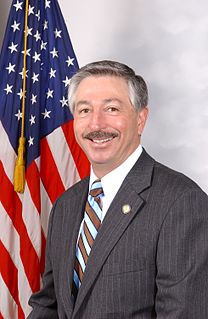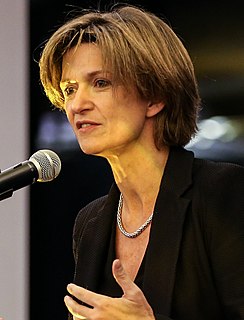A Quote by Sharan Burrow
Programs that reduce energy and water use and increase green agriculture and transport have huge job-creating potential.
Related Quotes
Everything we think about regarding sustainability - from energy to agriculture to manufacturing to population - has a water footprint. Almost all of the water on Earth is salt water, and the remaining freshwater supplies are split between agricultural use and human use - as well as maintaining the existing natural environment.
Like in Africa, if somebody doesn't have fuel, they're still going and collecting firewood. If they get an oven, that's a huge difference. You can do things to reduce the inequities by making sure that they can get clean energy, safe energy. To make sure they're not having to collect water every day. That's huge for women in the developing world.
Women have an important role in agriculture. We need to introduce technology, which will help us harness the potential of women in agriculture. We need to divide the agriculture sector into three parts- regular farming, farming of trees and animal husbandry. If we are able to do this, the contribution of our women will increase even more.
Our top plank really is a Green New Deal to transform our economy to a green economy, 100 percent wind, water and sun by the year 2030 - we can do it; this is an emergency, and we must do it - but to use that as an opportunity to put America back to work, to renew our infrastructure, and to basically assure that everyone has a job.






































